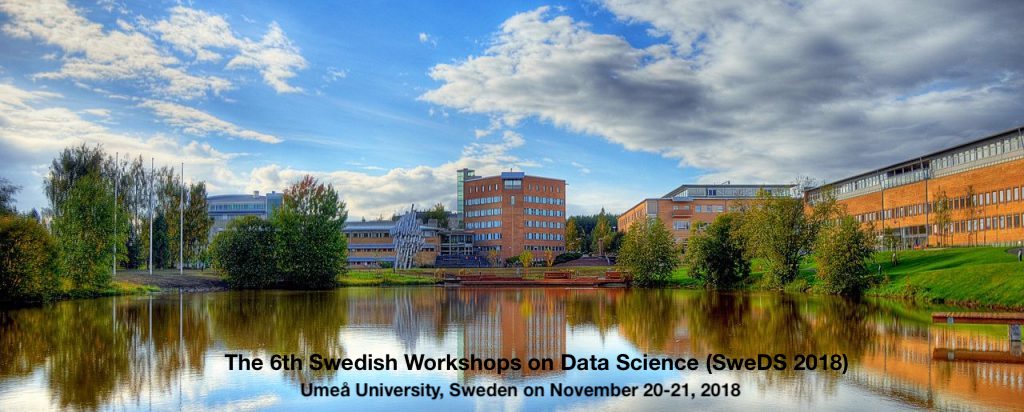(in order of appearance)
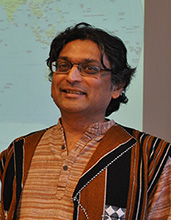
Invited Speaker: Devdatt Dubhashi
AI and Data Science Division, Chalmers and Machine Intelligence Sweden
Title: Efficient Deep Learning for Ubiquitous AI
Abstract: As we deploy Deep Learning (DL) algorithms on embedded devices for ubiquitous AI — in the Internet of Things and in autonomous vehicles — there are major challenges to be overcome due to the zoo of heterogeneous hardware platforms and various resources constraints (power and energy). This calls for an approach that integrates software and hardware development, tailoring one to the other. We will discuss various methods to compress DL networks to fit on limited energy resources and heterogeneous hardware platforms. We will discuss our work as part of the EU project LEGaTO (Low Energy Toolset for Heterogeneous Computing).

Invited Speaker: Jim Dowling
Logical Clocks AB, KTH – Royal Institute of Technology
Title: The next Frontier: Distributed Deep Learning
Abstract: Methods that scale with computation are the future of AI. Hyper-scale AI companies produce the most accurate models with distributed deep learning and train their models faster with distributed deep learning. In this talk, we will introduce the latest developments in distributed TensorFlow and show how distribution can both massively reduce training time and enable parallel experimentation for hyperparameter optimization. We will introduce different distributed architectures for TensorFlow, including the parameter server and Ring-AllReduce models. In particular, we will describe open-source TensorFlow frameworks that leverage Apache Spark to manage distributed training, such as Yahoo’s TensorflowOnSpark, Uber’s Horovod, and the Hops model. We will introduce the different programming models supported and highlight the importance of cluster support for managing GPUs as a resource. To this end, we will also show how Hops, an open-source distribution of Hadoop with support for GPUs as a resource, can run TensorFlow applications from a Jupyter Notebook using Apache Spark for distribution. We will also show walk through an end-to-end demo for distributed TensorFlow from training to model deployment and inferencing using TensorFlow serving.
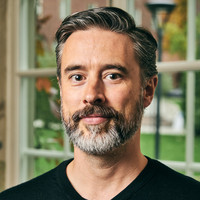
Invited Speaker: Bob Sturm
Tal, Musik och Hörsel (Speech, Music and Hearing), School of Electronic Engineering and Computer Science
Royal Institute of Technology KTH
Title: Be a responsible data scientist: Identify and tame your “horses”
Abstract: A “horse” is a system that is not actually addressing the problem it appears to be solving. The inspiration for the metaphor is the real-life example of Clever Hans, a horse that appeared to have great skill in mathematics but had actually learned to respond to a prosaic cue confounded with the correct answer. Similarly, a model created through the statistical treatment of a large dataset and wielded by a data scientist can also appear successful for solving a complex problem, but actually not be. In this talk, I take a critical look at past applications of data science — exemplifying contemporary practices — and identify where issues arise that affect the validity of conclusions. I argue that the onus is on the data scientist to not stop at describing how well a model performs on a given dataset (no matter how big it may be), but to go further and explain what they with their models are actually doing. I provide some examples of how researchers have identified and tamed “horses” in my research domain, music informatics.
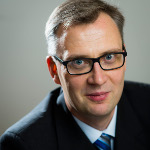
Invited Speaker: Markus Koskela
CSC – IT Center for Science Ltd. Finland
Title: Data Science at a Centre for Scientific Computing
Abstract: CSC is a Finnish center of expertise in ICT that provides services for research, education, culture, public administration and enterprises. Throughout our history we have hosted the largest computing environment in Finland and focused on computational research. In this talk, we will discuss our vision for leveraging machine learning and artificial intelligence as a non-profit state organization, introduce our way of modelling data analytics, and cover some of our current projects related to data science.
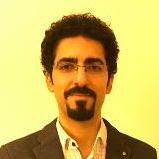
Invited Speaker: Alla Tarighati
SEB Analytics team
Title: From school to industry, Data Science at SEB Analytics
Abstract: What does it mean to be a data scientist at the leading Nordic corporate bank? Alla Tarighati, senior data scientist in the SEB Analytics team, will explain his journey from being a PhD student at the school of electrical engineering at KTH to becoming a data scientist at SEB AB. He will describe how it feels to be a data scientist at a financial institution and explain the challenges and opportunities you can expect from working in such an environment. He will also go through some ongoing machine learning projects at SEB Analytics.
